The call to service is something that comes to many of us at different times in our lives. As human beings we have the obligation to respond to this call, and when we do we realize how beneficial such work can be. Service work is imperative for the Christian, as it remains as a type of ministry that allows for one to enrich his or her relationship with God, as well as the human community he or she responds to. By experiencing the Lord during voluntary opportunities, one is able to take part in the dynamic world that God has created. As a result of being a child of God, created in his image; we are called to give ourselves away to others in service. Through the grace of God and the opportunities we respond to, we participate in the ongoing creation of the world and foster the great gift of love that allows for us Christians to grow exponentially. The service trip to Dominica is one example of a Christian mission which allowed me to grow closer to God, experience God’s love and goodness, as well as interact with my brothers and sisters from a different country. Certainly, the ten day service ministry in Dominica was more than just a visit to a new place with unfamiliar people. Dominica was an opportunity where I continued to grow as a person in the human community, where I learned that everything we do must be for the greater glory of God, and that dependence is a key factor which enriches our mind, body, and soul. This paper will focus on reflecting on my experience in Dominica and how the service trip to the Caribbean with the LEAD Learning Community allowed me to understand the importance of poverty, the need for dynamic cooperation, and how to better incorporate the Spiritual Exercises of Ignatius in hopes of living out the love motto, Ad Me jorum Dei Glorium, to do all things for the Greater Glory of God.
To begin with, my experiences in Dominica and reflection on the service that I completed there is essential to my development as a person. There is no doubt that I have grown in the past ten days that I spent in Dominica. However, in order to better conceive the great impact that my actions in this foreign land has had on myself as well as my encounter with the people, it is necessary that I examine some of the theological articles that we looked at, as well as Teilhard de Chardin’s Divine Milieu, with regard to how these enhance my reflection on service. Teilhard makes an essential point in his book, that we as human beings are the image of God. With that said, it is imperative to recognize the God of the Trinity who is Father, Son, and Holy Spirit. Part of this dynamic mystery includes God the Son, Jesus Christ, namely God who came down to take on flesh becoming incarnate. One might ask, well what does this mean with regard to the Christian call to service as a ministry? Well, through the historical person of Jesus Christ, we can see how he interacted in the world and ultimately what it means to be human. In addition, J. Matthew Ashley explains the dynamism of the Trinity as three persons who are in love, constantly changing. The members of the Trinity each have purely selfless love and are perfectly open. Ashley argues that the mutual relationship with the Father, Son, and Holy Spirit causes the persons of the Trinity to be in constant love. In essence God makes himself vulnerable to humanity. This is also God’s will for us and our call as Christians, which we can express through service. Therefore, we become part of the dynamic body of Christ.
Furthermore, with this important theological viewpoint outlined, it is important that I now talk about how this relates to my experience in Dominica. It was my hope that this service experience would allow me to open myself up to my fellow brothers and sisters in Christ through multiple incidents of love. The main reason why I jumped on this opportunity was because of my love for others and my understanding of how important it is to share that love with the world God made. One of Teilhard’s great messages is that all the activities that we do, should be done and effectively done out of love, to promote the life of the body of Christ. When I worked with the children at the Alpha Center, I truly experienced God in the love that I showed them by teaching them, playing with them, and singing with them. At the same time, I also felt the powerful love of God in the love that the handicapped children showed me. The experience that I had with these special children was something that demonstrated to me that we are all truly instruments through which God works to touch and reach out to others in a beautiful way.
Another great pillar of Christianity that Teilhard focused on in his Divine Milieu was poverty. According to Teilhard, poverty is about dependence which makes one richer. Poverty or neediness helps us as human persons to learn how to participate in community. What this ultimately means is that we as Christians are called to participate and interact with the body of Christ in connection with God and others. In Dominica, I was able to experience poverty in a number of ways. First of all, I had to become dependent on the other members of my group. Whether it was the cooking of meals, the sharing of reflections during class, or the simple fact of looking out for one another throughout the day, dependence was profound. My every day experiences through my dependence on the members of the group combined with simple living made me feel alive as a person. This is such an important point to recognize, as God calls us to become persons, not individuals. There have been times in my life when material things, a lack of cooperation, connection, and/or communication have caused me to fall away from personhood into the trap of individualism. However, Dominica taught me to let go of my comfort zone and the things “of the world” in order to be at least for a little while what I would describe as a pretty full person living “in the world” through love. I also experienced dependence when working at the Alpha Center due to the instruction of the teachers, as well as the needs of the handicapped students. By letting go, a lesson spoken of by Dean Brinkley as an overlying theme of his articles, we become passive and receptive to God’s love in poverty. Brinkley argues that at this point we as persons experience the fire—God’s love. He goes on to say that only dependent people experience this, as those who are ultimately poor in spirit will do all things as a response to love.
In addition, by tutoring the children at the youth center and spending time in conversation with some people at the homeless shelter, I yet again felt the presence of God. One of the key questions that this trip allowed me to answer was that I do have the human responsibility as a Christian to live simpler so that others in the world can have the opportunities that I do. I saw this come full circle and really make sense when working with the children of Dominica. Although I cannot control where I was born, the gifts and talents I was given, or the opportunities that I have been blessed with, I can control what I do with this incredible grace. When doing simple math problems and reading with the students at the Youth Center and Alpha Center, I was able to help them. Even though, I helped them get some homework or schoolwork done, the experience was much more than that. In giving my time and self away to them, I showed them that I cared and shared that love of God with them. In being unselfish, I not only felt God’s love and at times saw God shining through these children, but I myself grew in understanding of what it means to share opportunities with others. I felt great Joy in my heart when I saw the smiles on those children’s faces and knew that what I was doing was worthwhile and good. Although not every child smiled, God spoke to me and this became more evident through my reflections of the service I was completing and our class discussions.
Additionally, going to the homeless shelter and spending time with the people there was extremely humbling for me. I learned how important this act of love was, to recognize every person of the body of Christ as a human being. With that said, Teilhard’s understanding of providence comes to mind. The idea that God is actively present in the world, which invites goodness, could be clearly seen. However, it was up to me to respond and give those homeless people my love by putting aside any fears and anxieties, by visiting them. I learned real chastity by visiting a few of the homeless people of Dominica. Before, I believe I really knew what it meant to love, but not completely how to love unselfishly and for a time unconditionally. The connection that I had with one particular man named Clement at the shelter was incredible. After spending more than an hour talking with him two consecutive afternoons, I was able to go beyond the point of thinking that this man was homeless, dirty, and probably not well educated. In the simple act of unselfish love, I learned that he was just as human as I was, if not more. He was a person and intricate part of the body of Christ, namely my brother. With that said, I also can confidently say that I began to learn true obedience. Clement taught me that I have a long way to go when it comes to putting my faith, hope, and love together at the same time. What I mean by this is that my belief in God must always be fostered in what I do; AMDG—All for the Glory of God. By listening to Clement and communicating with him I was able to become vulnerable. This vulnerability helped me reflect on the truth that all people are images of God. Each person must be loved, especially those who are marginalized by the world for they are also an important part of the human community. From my experience I have realized that my own community and cities have much need of similar voluntary and service efforts in order to make the world a better place one step and one life at a time.
As a result of reading the Divine Milieu and focusing on the words of Teilhard and other Theologians such as Brinkley and Ashley, I was able to recognize that one absolutely cannot separate faith life from daily life. I can now say that I have a much greater understanding that where love is God always is and this goodness which is present is what I believe makes us truly human. Since people were created to praise, reverence, and serve God through love, this must be done in our daily action. Religious traditions, practices, and sacraments are all vital pieces of our faith and spiritual journey, many of them which we do at Mass or in Church. However, if we are to fully respond to the call to service which is essentially the call to love, we must strive like Teilhard says to love in all that we do, wherever we are, day in and day out. By living life this way Christians are able to believe in God and fully participate as the Lord calls us to do so because we are able to get to know Jesus Christ. It did not surprise me to learn that the hope of the world stems from knowing Jesus because he lowered himself through love to redeem humankind, make us one again with the Father, and give us the example of what it means to lay down one’s life for one’s friends. For Jesus did say, “I am the way, the truth, and the life. No one comes to the Father except through me” (John 14:6). Therefore, this service trip to Dominica reminded me of these key components of our Christian faith and that there must be a metanoia, a change of my mind and heart. I believe that this happens each time I respond to the call to love through service. The interior changes that we make as people through dynamic cooperation, ultimately co-operating as persons verses individuals, is one way that structures of injustice are able to be crushed in our world and for the justice like that Martin Luther King stood for to reign supreme.
Lastly, the Ignatius Spiritual Exercises spoken of by Ashley and Father Beirne have impacted my life, my experience in Dominica, and my reflection on service as well. Ashley explains the importance of the Ignatius exercises in that they allow people to grasp God’s will in which the high point is Jesus Christ. They also help us as humans and Christians to understand how God’s will applies to our own historical situation so we can strive to do all things for God’s glory. Finally, the last part includes action, namely we are called to do something about what we experience in response to God’s will. This is what Ashley as well as Beirne argue is necessary in order to build up the Church, the City of God and promote Heaven on earth. I believe that it is God’s will that I do service work, based on the gifts that I have and my heart’s calling to love others in this way. Dominica certainly helped me have the opportunity to do this. Through my service in Dominica I began to grasp God’s will and how it applies to the historical situation in that country. I saw poverty, homeless people, the physically and mentally handicapped, as well as needy children. The reality is that there is a need for people to help in this country as well as other nations throughout the world, it is that simple. Then, through my action, after learning of some of the realities and reflecting, I was able to truly respond to the call to serve and love. In addition, through our action, Ekhart argues that we as people participate not only in the human community but in the very dynamic life of God. I believe that this was true for me in Dominica. The love I felt at the Alpha Center, the Homeless Shelter, and the Youth Center was extraordinary. Despite a negative comment and false understanding that was professed by one of the teachers at the Alpha Center about our LEAD Learning Community’s involvement in Dominica, I know what I and the rest of our group was doing was the right response. I can say that I have acted out of love for my neighbor and have positively responded to the call to love and serve for the greater glory of God.
In conclusion, the moral dilemma that we are faced with is that which is one where we must experience, recognize, and learn what makes us more or less human. Through my service in Dominica and reflecting upon it, I am certain that my humanity has begun to blossom. It is evident that service is not merely something that I do, but has become a part of who I am. I know that when I serve others as I did in Dominica; I am engulfed in God’s love and goodness. This is what I feel and have learned to recognize makes me a fuller human being. Although this world can be cruel, dark, and evil we must continue to have hope and do all we can to fight the sins of injustice, marginalization, and inequality all of which stem from a lack of love. These words I found on the wall of the Youth Center, they struck me and put things into perspective, “It’s not what happens to you in life that matters but what happens in you; because if what happens in you is right, what happens to you doesn’t matter.” Therefore, what this trip to a Dominica and interaction with a new culture has taught me is that I am called to act at all times through love, whether I be serving people in the Caribbean or serving people in my own community. I realize that I did not change Dominica per say, nor did I change the world through my works of ministry there. What I do believe is that this trip has helped me effect others through love in small ways. However, what might be even more important and far greater than that is the fact that I have begun an interior change in my own personhood. What I have begun to understand more clearly is that I, Dan Jason, am someone who cares about others, desires to love them, wants to love God in all actions of life to participate in the body of Christ because this is what makes me human and feel whole/holy. My hope is that for the remainder of my life I will continuously meditate on the words of Jesus through the Ignatius Spiritual exercises of prayer, action, and reflection in that Christ said, “For even the Son of Man came not to be served but to serve, and to give his life as a ransom for many” (Mark 10:45). If nothing else, Dominica has shown me love, to recognize love, respond to it; and in experiencing this love to know that I have experienced God.
Subscribe to:
Post Comments (Atom)













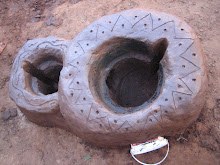
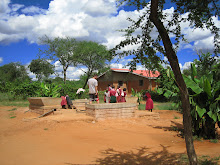

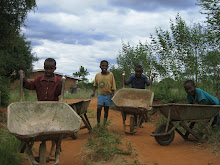




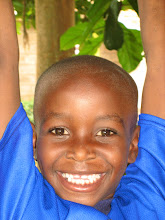
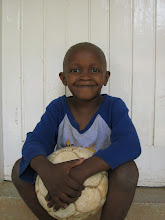

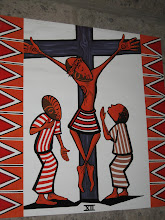
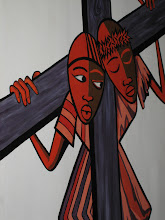

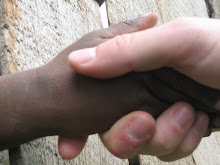


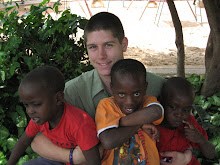
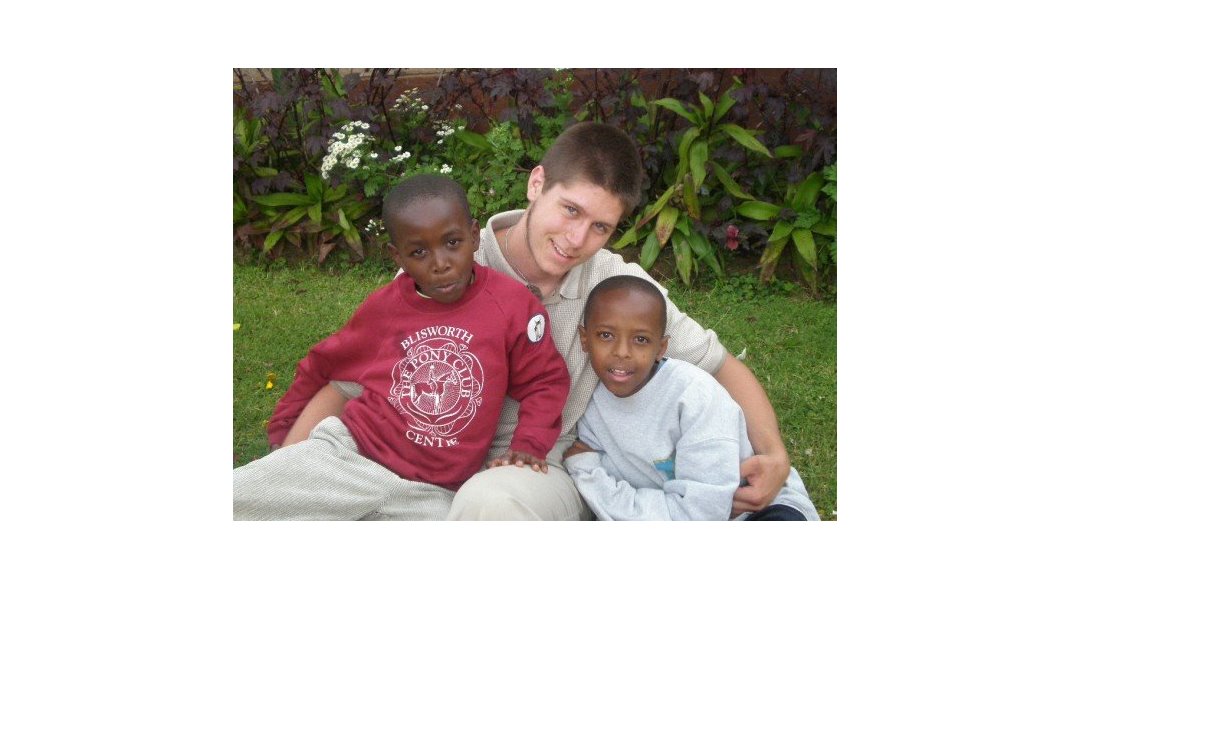


No comments:
Post a Comment